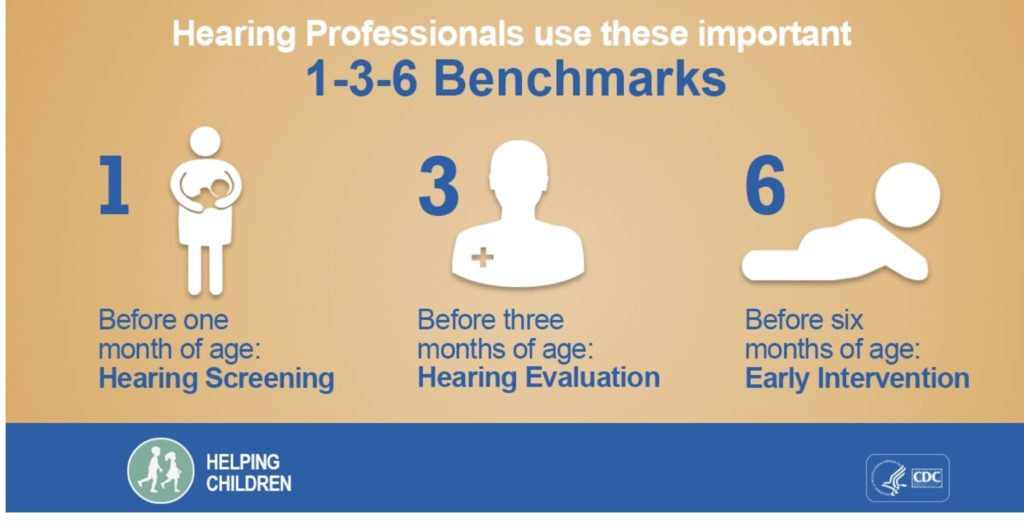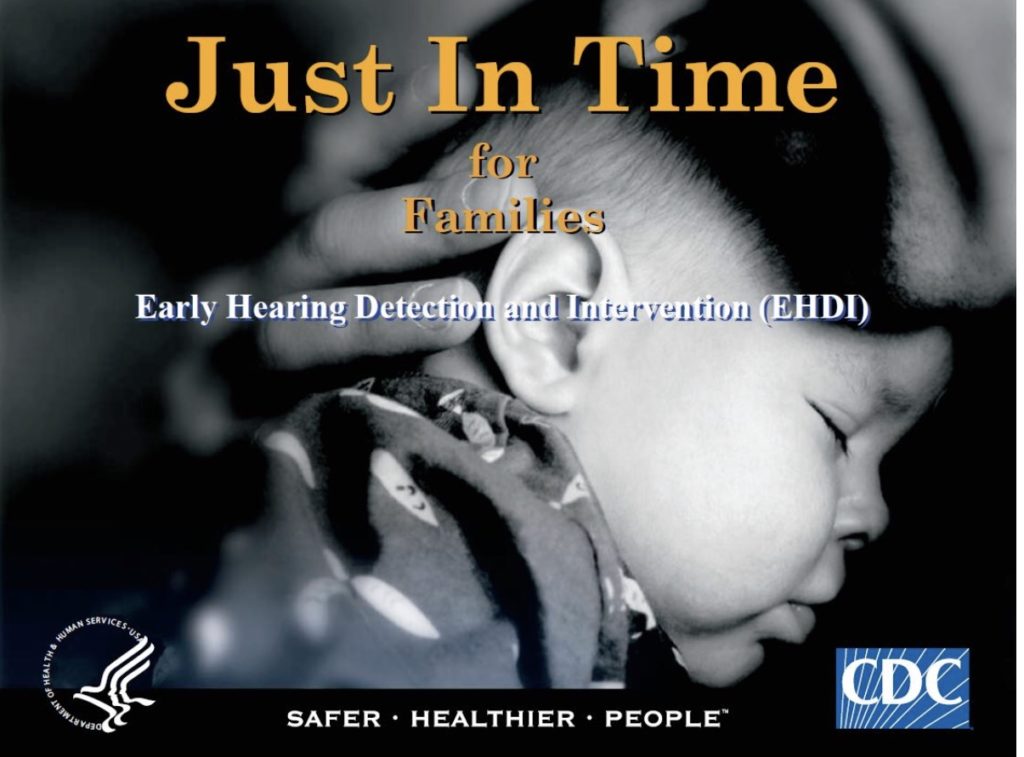
This post is sponsored by the CDC’s National Center on Birth Defects and Developmental Disabilities (NCBDDD).
Last Mother’s Day, I announced my pregnancy and here we are a year later with an almost six-month-old baby girl. Six months is a huge deal; it means we’ve made it past half of her first year and through some significant milestones. One of the milestones that I take very seriously is hearing. We don’t talk about hearing loss enough because it is one of the most common birth defects with up to 12,000 newborn babies are born deaf or hard of hearing every year. Yes, this number is alarming but what’s important it to find out as early as possible. My mantras information is power, so I wanted to share a few things that all of us moms should know about hearing loss.
Early Hearing Detection Screening leads to normal speech
All three of my kids got their hearing screenings as newborns at the hospital before we were discharged. I was relieved when the nurse wheeled the baby in with the good news that she passed her hearing screening back in November when she was born. If you’re worried about the hearing screening, know that it’s short, easy and not painful. Your baby would probably sleep through the screening. Early hearing detection screening in babies should be done at one, three and six months of age according to the CDC’s National Center on Birth Defects and Developmental Disabilities. Hearing Professionals use 1-3-6 benchmarks as seen in the infographic below.
[Tweet “Don’t be scared, if a baby is born deaf or hard of hearing; early detection can lead to speech being at normal developmental milestones despite hearing loss.”]
So my daughter passed her hearing screening at the hospital but if she didn’t that would mean that she would need a full hearing test as soon as possible, but no later than three months of age. If your child needs one, do it right away, this isn’t something you want to procrastinate about, the timing matters. If the need arises for early intervention, don’t be shy to talk to your healthcare provider about your concerns to get started right away. Our job as parents is to advocate for our babies so learning what the best options are for early detection is important. Keep in mind that if left undetected, a hearing loss would have an impact on other milestones such as speech and language development, as well as his or her thinking, learning, and social skills.
[Tweet ” If a baby does not pass a hearing screening, it’s very important to get a full hearing test as soon as possible, but no later than 3 months of age.”]Signs and Symptoms
When I took my son in for his four year wellness check, I requested that our pediatrician give him a hearing screening because he would complaining about loud noises. I wasn’t sure if it was just a low tolerance for noise or a hearing problem even though he passed the hearing screening before but I preferred to be safe than sorry. It turned out that his hearing was fine but I’m glad that I got him checked. I always tell my mom friends, if you think something is off don’t shy away from asking, right away. Every child is different but here are a few signs in babies and children of hearing loss according to the CDC:
Signs in Babies
• Does not startle at loud noises.
• Does not turn to the source of a sound after 6 months of age.
• Does not say single words, such as “dada” or “mama” by one year of age.
• Turns head when he or she sees you but not if you only call out his or her name. This sometimes is mistaken for not paying attention or just ignoring, but could be the result of a partial or complete hearing loss.
• Seems to hear some sounds but not others.
Signs in Children
• Speech is delayed.
• Speech is not clear.
• Does not follow directions. This sometimes is mistaken for not paying attention or just ignoring, but could be the result of a partial or complete hearing loss.
• Often says, “Huh?”
• Turns the TV volume up too high.
As I mentioned last month, I use the CDC Milestone Tracker app to monitor my baby’s milestones. Hearing loss can affect other milestones so if you see your child not reaching all of her milestones, request a hearing screening. I hope that this post is helpful but if you need more information, head over to the Centers for Disease Control and Prevention, National Center on Birth Defects and Developmental Disabilities website to learn more. If your child has hearing loss, read A Parent’s Guide to Hearing Loss for detailed information to help you make decisions.

